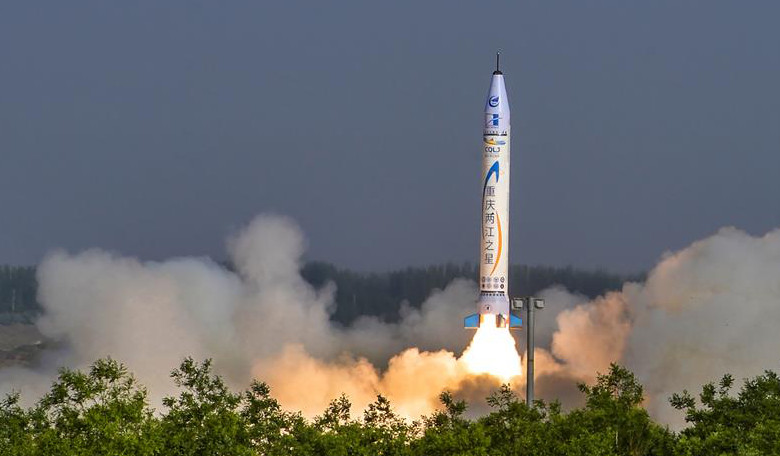The space industry in the west has been dominated by the likes of Musk, Bezos and Branson for a while now, but that does not mean competitors have been sat idly by and to prove that the rocket launching business is still an open game, Chinese company OneSpace became the country's first private company to launch its own rocket.
OneSpace, a startup based in Beijing, successfully launched its first 9-metre-tall, single-stage OS-X solid fuel rocket to an altitude of around 40 km from an undisclosed base in northwestern China on Thursday. This marks a significant milestone for the country’s growing commercial launch sector and space exploration program.
Founded in 2015 by Shu Chang, OneSpace’s CEO identifies his companies progress with that of the once newcomer Elon Musk. Speaking to CNNMoney in an interview ahead of the launch, Chang said, "OneSpace's situation right now is very much like where SpaceX stood in its early years. SpaceX is the first in the US. We're the first in China.”
However OneSpace is not looking to match the payload capabilities of the Falcon 9 just yet and is instead looking to provide launches for prices lower than US$10,000 per kilogram.
Clearly though the company’s founder has big expectations for the direction in which OneSpace is heading; “we will develop bigger rockets in the future and participate in the global competition,” explained Chang to China Daily.
OneSpace said that the rocket, named 'Chongqing Liangjiang Star' is designed for suborbital flights that will participate in high-altitude research.
It is still early days for this emerging sector, but 2018 could be the year that Chinese commercial launch companies begin to come into their own, as companies such as Landspace, Linkspace and Expace look to increase testing and production of their own rockets.
Linkspace has already pushed forward in its development of a reusable orbital rocket with a successful vertical takeoff, vertical landing (VTVL) test (similar to the Falcon 9) and Expace is also looking to capitalise on reusable rocket technology.











